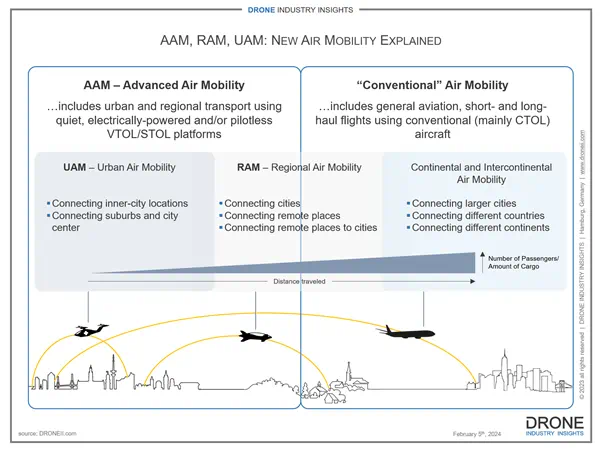In 2023, the drone industry experienced a significant shift in its funding landscape. This was marked by a stark 50% reduction in investment from the previous year, decreasing from $3.309 billion to $1.678 billion. The past year saw a discernible decrease in both the volume of deals and the overall funding amounts, a trend that diverged from the previously observed momentum in the drone industry. As we take a closer look at this development, it's crucial to understand the underlying dynamics that contributed to this shift and how they will shape the future of drone innovation and investment.
Venture capital (VC) firms, historically vital proponents of drone startups, displayed a more cautious stance in 2023. This change in investment behavior may be due to a broader economic climate that is marked by uncertainty, leading investors to prioritize more traditional investment targets. Consequently, drone companies encountered a more challenging fundraising environment, forcing them to pivot towards operational efficiency and strategic partnerships to secure capital.
Amidst the ripples of economic recalibration, North America maintained its prominence as the top region for drone funding, albeit with a slightly reduced dominance (71% of the investment pie). This slight shift in investment allocations has been a welcome development for European companies, whose share of the investments received has risen from 7% to a notable 17% in the span of two years. Meanwhile, Asia has experienced the opposite, with its share decreasing from 14% in 2021 to 5% in 2023.
Furthermore, partnerships, mergers, and acquisitions (M&A) have long been pivotal mechanisms for growth and consolidation in the drone industry. In 2023, the sector witnessed a decline in the number of deals but an increase in their value, suggesting a focus on strategic alignments and the desire for synergies over mere expansion. These high-value transactions reflect a maturing industry where companies seek to enhance their technological capabilities, expand market access, and fortify their competitive positions through selective collaborations.
All of these statistics are likely signs of new trends and strategic realignments. As we navigate through this altered funding terrain, investment data suggests a strategic drift that offers both challenges and opportunities for stakeholders. It is essential for organizations to adapt and innovate in order to remain competitive in this evolving landscape. Drone companies, in the face of a contracting funding landscape, are now embarking on a journey toward operational efficiency and cross-sectoral synergies.
As we look towards the future, it's evident that the drone industry is undergoing a phase of introspection and adaptation. Drone companies and investors alike are recalibrating their strategies to thrive in a shifting financial landscape, emphasizing sustainable growth, strategic partnerships, and innovation. This period of transition is not merely a response to short-term challenges but a strategic realignment towards long-term resilience and success. Given the shift in investment trends, the strategic decisions and investments of 2024 will undeniably shape the industry's future, potentially paving the way for a resurgence of innovation and investment in the forthcoming years.






